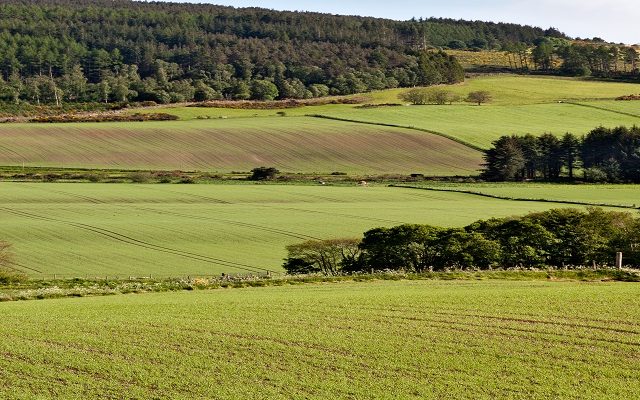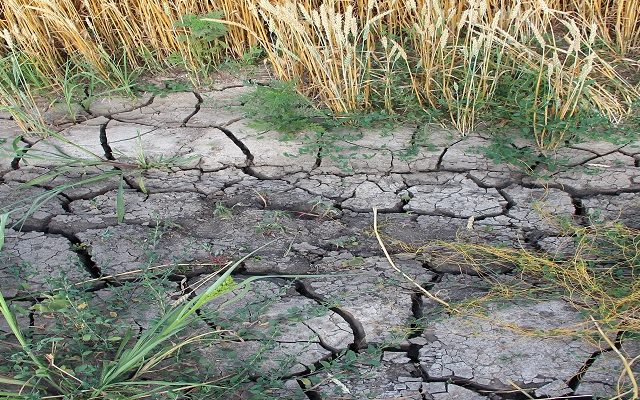Is it possible to improve farm profitability and the environment?
Is it really possible to improve farm profitability, soils and the natural environment at the same time?
This was the question we sought to address at a panel discussion held at Cereals 2023, where speakers included Janet Hughes, Programme Director for Defra’s Future Farming and Countryside Programme (FFCP); Michael Kavanagh, Shropshire farmer and a founding member of the Green Farmer Collective; Elle Vercoe-Gibson, Leaf Certification Manager and Abbie Allen, farm consultant in Strutt & Parker’s Stamford office.
Our premise was that many farmers are questioning how they are going to fill the financial gap created by the loss of Basic Payments, while recognising there is growing pressure to improve their environmental performance.
So, is it possible?
The answer from all of our panellists was ‘yes’, although they also acknowledged it is not always a straightforward process and involves adopting a mindset of continuous improvement.
Farmers will also need to focus on developing a system that works for their own particular farm, is costed at field level and which dovetails with agri-environment schemes as a source of income.
The following highlights different areas of opportunity as outlined by our speakers:
Grants
Janet Hughes explained that the government is making grants available to farmers in England to help them through the transition.
Most farmers are already thinking about how to increase their income, reduce their costs and cut waste.
“What we are trying to do is provide lots of different ways for you to do whichever of those three things, in whatever combination of interventions will work for you.”
The Sustainable Farming incentive (SFI) has been designed so any farmer can sign up to options which are good for the farm, good for food production and good for the environment.
Defra has now published full and final details of all the standards that will be available in 2023, including their payment rates.
Farmers will be able to apply for SFI 2023 from this summer, with Defra operating a controlled rollout process. This means farmers who are interested will need to contact the Rural Payments Agency (RPA) first and then the agency will arrange for them to apply.
“Lots of actions we are paying for are in the sweet spot where it might help to cut your costs, make your farm more resilient, help you to continue to produce food and contribute to improvements in water quality, biodiversity and carbon sequestration in the countryside,” said Janet.
“You can pick and mix whatever options you want to do on as much or as little land as you want. There is also much more flexibility within the actions, so you can decide how to do them on your farms.”
New market opportunities
Elle Vercoe-Gibson explained how LEAF’s Integrated Farm Management (IFM) framework offered farmers a route to improve environmental practices on their farm, but in a way that is flexible and works for their business.
Retailers have made lots of commitments about improving their environmental practices on-farm and buying food which meets LEAF Marque certification is a way for them to do that.
The process of going through the IFM Framework can also open up opportunities for funding from new sources.
“Through LEAF Marque we ask farmers to set actions and targets that are specific to their own business and that helps them to see where efficiencies can lie and opens them up to a pool of potential market opportunities or routes to market.
“One of our Resilient and Ready farmers had a biodiversity audit on their farm and that then opened them up to a huge pot of money they would have never had access to before.
“There are lots of opportunities there for farmers, but you have to be open-minded to the process.”
Direct drilling
Michael Kavanagh said eight years ago he was appointed farm manager of a 600-acre conventionally farmed business.
Faced with the challenge of how he was going to get crops established on his own, he decided to go down the strip-till route. He was also conscious that much of the chemistry which farming has become so reliant on is under threat.
“I wanted to learn to farm without that chemistry, while we still had it to fall back on.”
Fast-forward eight years and the farm has nearly tripled in size, the home farm is purely direct drilled and about a third of the farm is spring cropped, with all of that ground cover cropped and grazed with livestock.
“We are no longer using fungicides; I haven’t used an insecticide in eight years and am no longer using any synthetic P and K. My soil pHs have also now stabilised so I am no longer having to apply lime,” said Michael.
Overall, there had been a minor dip in output, but that was more than offset by the colossal savings on inputs, he added.
“Eight years ago I did not set out to farm for the environment – I was a farm manager and had to run a profitable and sustainable business.
“But if you improve your farm and your soils the benefits to the environment come as a happy consequence to that, so it is a win, win.”
Cover crops for weed control
Abbie Allen spoke about research she carried out as part of her Master’s degree on the use of cover crops for weed suppression – particularly focusing on blackgrass.
Cover crops are not just for weed suppression – they are good for soil health, biodiversity, promoting water infiltration and to control erosion. However, they can be used as part of a weed control plan too.
Her research involved looking at whether there was a difference between using one species of cover crop or a multi-species mix.
“My results found that fodder radish and buckwheat used alone were the best at suppressing the germination and growth of blackgrass,” she said.
“However, the multi-species cover crops affected more of the biomass and growth of the blackgrass – so it still germinated, but the plant didn’t do as well.”
Under the SFI 2023 offer, farmers can access funding for cover crops through the SAM2 multi-species winter cover option. Farmers will receive £129/ha to establish a cover crop mix containing at least two species. It must be well-established over the winter months (Dec-Feb. The original SFI 2022 offer will no longer exist.
Under Countryside Stewardship there is the SW6 option which pays £129/ha, which has different requirements again, but the general principle is that there must be a cover crop in the ground over winter.
Final thoughts
Michael Kavanagh’s real-life experience shows that it really is possible to improve farm profitability, soils and the natural environment at the same time. However, it requires a determination to embrace alternative methods, to change things when they don’t work and to be willing to learn from your own and others’ experiences.
There are not many quick wins and there will be challenges along the way but really positive outcomes are genuinely attainable.
Our farming specialists are helping clients to navigate their way through these changes to ensure a sustainable future from both a financial and environmental perspective. So please do contact James Bairstow or any other member of the Farming team if you require further guidance.






